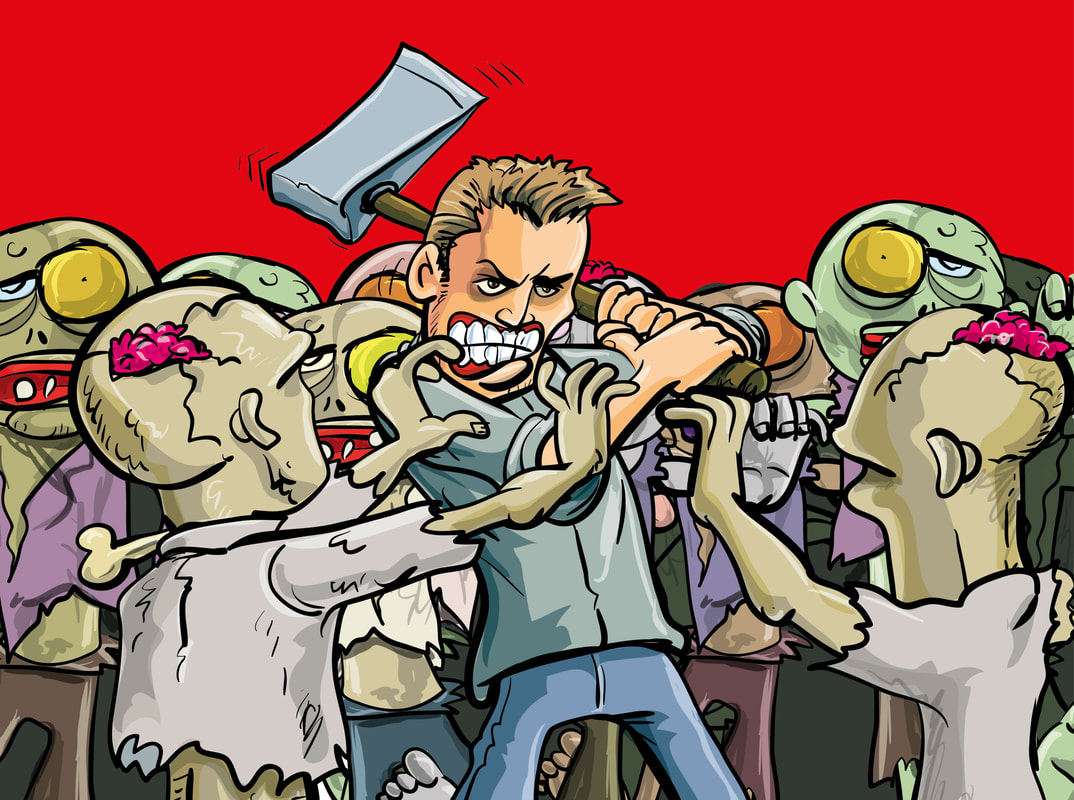ACADEMIC LISTENING TEST PRACTICE
ZOMBIES
ZOMBIES
For Students Preparing for Academic Tests / IELTS and TOEFL
Listen as you read the script.
Playing Time: 2 minutes 31 seconds
Zombies are a popular subject in popular culture, appearing in movies, television shows, and video games. The idea of the zombie is that they are dead people who have been reanimated, usually through some sort of virus or other means, and are now hungry for human flesh. They are often portrayed as being slow, clumsy, and not very intelligent, but some depictions of zombies have them being faster and more agile.
The origins of the zombie as a cultural phenomenon can be traced back to the early 20th century, with the earliest known depiction of zombies appearing in the 1915 silent film White Zombie. However, it was not until the release of George A. Romero's 1968 film Night of the Living Dead that the modern zombie as we know them today was established. This film, and its sequels, popularized the idea of zombies as the walking dead who are reanimated by an unknown virus and are driven to eat the living.
Since then, zombies have appeared in countless forms of media, including the Resident Evil series, The Walking Dead, and World War Z. In these depictions, the zombies are often portrayed as being the result of a global pandemic, with the virus spreading rapidly and turning most of the population into the undead. This idea taps into the fear of a worldwide catastrophe and taps into the human fear of death, decay and our own mortality.
One of the reasons why zombies are so popular is because they are a blank slate, which means that creators can use them to tell all sorts of different stories. Zombies can be used to tell stories about survival, about the collapse of society, about the human condition, or about the importance of community. They can also be used as a metaphor for different things, such as consumerism or fascism.
There are also different variations of zombies, such as fast zombies, smart zombies, and even zombies that can talk. These different variations allow creators to tell different types of stories and explore different themes.
The origins of the zombie as a cultural phenomenon can be traced back to the early 20th century, with the earliest known depiction of zombies appearing in the 1915 silent film White Zombie. However, it was not until the release of George A. Romero's 1968 film Night of the Living Dead that the modern zombie as we know them today was established. This film, and its sequels, popularized the idea of zombies as the walking dead who are reanimated by an unknown virus and are driven to eat the living.
Since then, zombies have appeared in countless forms of media, including the Resident Evil series, The Walking Dead, and World War Z. In these depictions, the zombies are often portrayed as being the result of a global pandemic, with the virus spreading rapidly and turning most of the population into the undead. This idea taps into the fear of a worldwide catastrophe and taps into the human fear of death, decay and our own mortality.
One of the reasons why zombies are so popular is because they are a blank slate, which means that creators can use them to tell all sorts of different stories. Zombies can be used to tell stories about survival, about the collapse of society, about the human condition, or about the importance of community. They can also be used as a metaphor for different things, such as consumerism or fascism.
There are also different variations of zombies, such as fast zombies, smart zombies, and even zombies that can talk. These different variations allow creators to tell different types of stories and explore different themes.
Cartoon illustration of a man defending himself against a zombie attack
Note: For more cool ESL resources about movies, visit my All Things Topics site.


